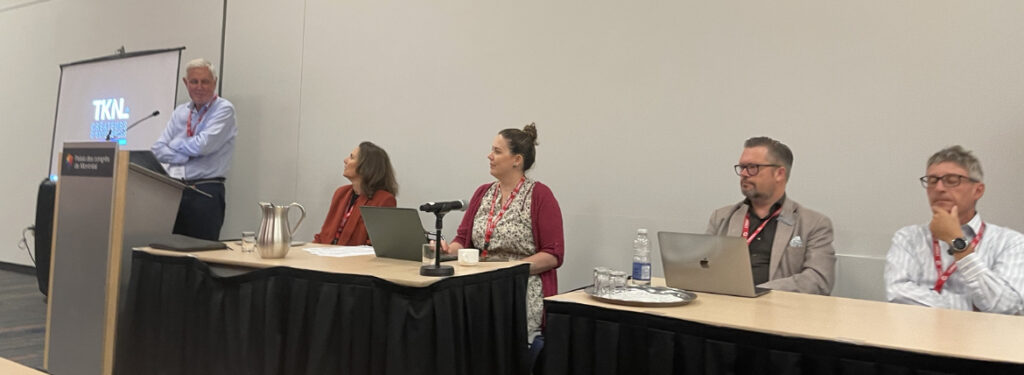During WCTR23, a panel led by Michael Browne discussed future research themes in city logistics with the audience. City logistics research has grown dramatically in recent years (from a small base). There are many more conferences and journal papers, and more researchers are now involved in this field.
This panel session will identify the actions needed to support this growth and extend it further. Actions could include both scaling up the research activities and identifying ways to involve researchers from countries and regions not currently widely represented in urban freight research. In addition, the transfer of research findings into practice was explored.
The panel members were:
- Prof. Laetitia Dablanc (University Gustave Eiffel, leader of the World Conference on Transport Research Society Young Researchers’ Initiative WCTRS-Y)
- Dr. Per-Olof Arnäs (Director, Logistics Strategy Einride – formerly at Chalmers)
- Prof. Alison Conway (The City College of New York – CUNY)
- Prof. Johan Woxenius (University of Gothenburg).

The themes for future research discussed were:
- Collecting and analyzing urban freight data and using data for urban freight forecasting.
- City logistics and urban spatial planning (including SDGs, externalities, and impact on equity). More coherence and consistency is necessary.
- Decarbonizing city logistics and fleets, from light electric to large trucks.
- Tactical, operational, and dynamic operations planning (based on IoT); VRP for transportation (of electric vehicles and smart charging) and linking to warehousing. Data platforms support the planning.
- The human factor, specifically the role of drivers.
- Nudging decisions by people in the last mile supply chain.
- City logistics in megacities and emerging markets, but also for smaller cities
- Collaboration in research with private companies.
The audience added themes like developing so-called Cityports (the future of shared city hubs and business models), circular flows, the role of SMEs and the crowd in data platforms and local-for-local delivery operations, and how to learn from urban living labs and stakeholder involvement in research projects (and learning from worst practices here).
During the 2023 City Logistics conference in Bordeaux, Michael Browne also presented other research challenges: using waterways for city logistics, using transport data for road and infrastructure maintenance, decision support systems for collaborative decision-making, self-regulating mechanisms, using intelligent access in cities (and other local regulations and enforcement) and segmentation in city logistics solutions.
Walther Ploos van Amstel.
